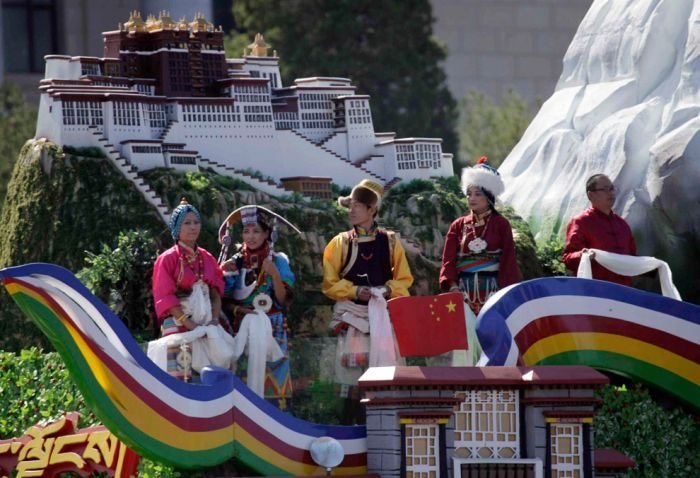|
|
60th Anniversary Of Communist Party, Beijing, China
|
These rebellions resulted in an estimated loss of several million lives each and led to disastrous results for the economy and the countryside. The flow of British opium hastened the empire's decline. In the 19th century, the age of colonialism was at its height and the great Chinese Diaspora began. About 35 million overseas Chinese live in Southeast Asia today. The famine in 1876–79 claimed between 9 and 13 million lives in northern China. From 108 BC to 1911 AD, China experienced 1,828 famines, or one per year, somewhere in the empire.
While China was wracked by continuous war, Meiji Japan succeeded in rapidly modernizing its military and set its sights on Korea and Manchuria. At the request of the Korean emperor, the Chinese government sent troops to aid in suppressing the Tonghak Rebellion in 1894. However, Japan also sent troops to Korea, leading to the First Sino-Japanese War, which resulted in Qing China's loss of influence in the Korean Peninsula as well as the cession of Taiwan to Japan.
Following this series of defeats, a reform plan for the empire to become a modern Meiji-style constitutional monarchy was drafted by the Guangxu Emperor in 1898, but was opposed and stopped by the Empress Dowager Cixi, who placed Emperor Guangxu under house arrest in a coup d'état. Further destruction followed the ill-fated 1900 Boxer Rebellion against westerners in Beijing.
By the early 20th century, mass civil disorder had begun, and calls for reform and revolution were heard across the country. The 38-year-old Emperor Guangxu died under house arrest on 14 November 1908, suspiciously just a day before Cixi's own death. With the throne empty, he was succeeded by Cixi's handpicked heir, his two year old nephew Puyi, who became the Xuantong Emperor. Guangxu's consort became the Empress Dowager Longyu. In another coup de'tat, Yuan Shikai overthrew the last Qing emperor, and forced empress Dowager Longyu to sign the abdication decree as regent in 1912, ending two thousand years of imperial rule in China. She died, childless, in 1913.
|
|









